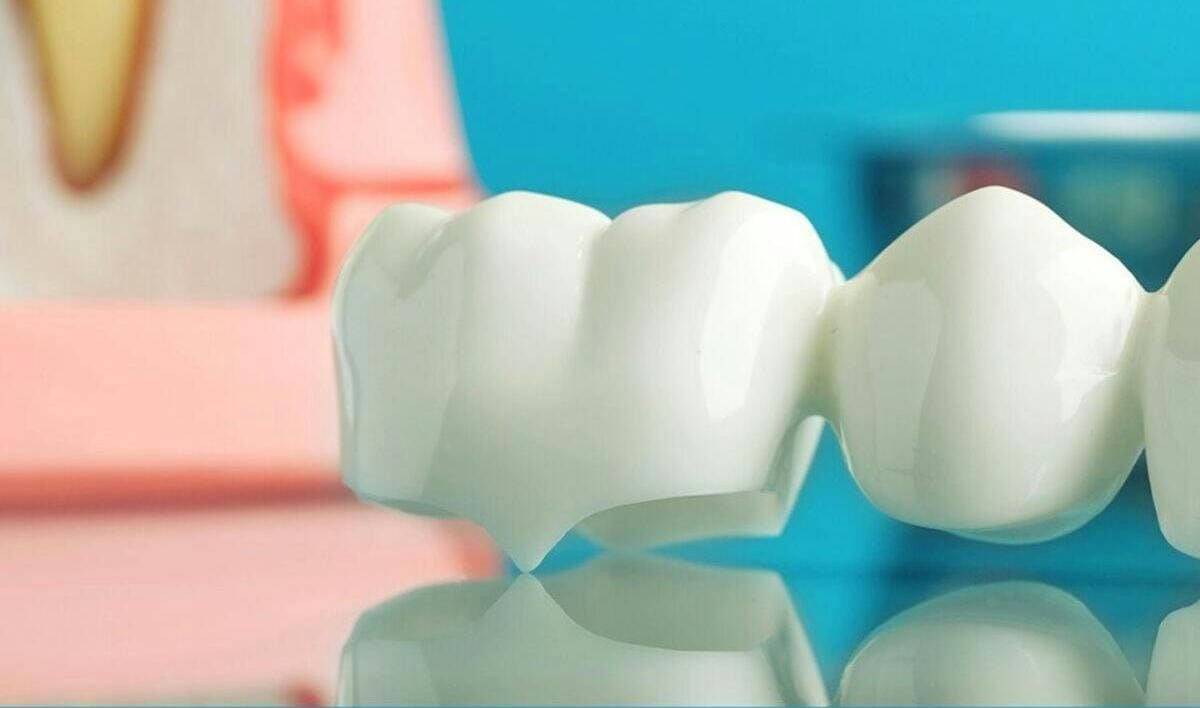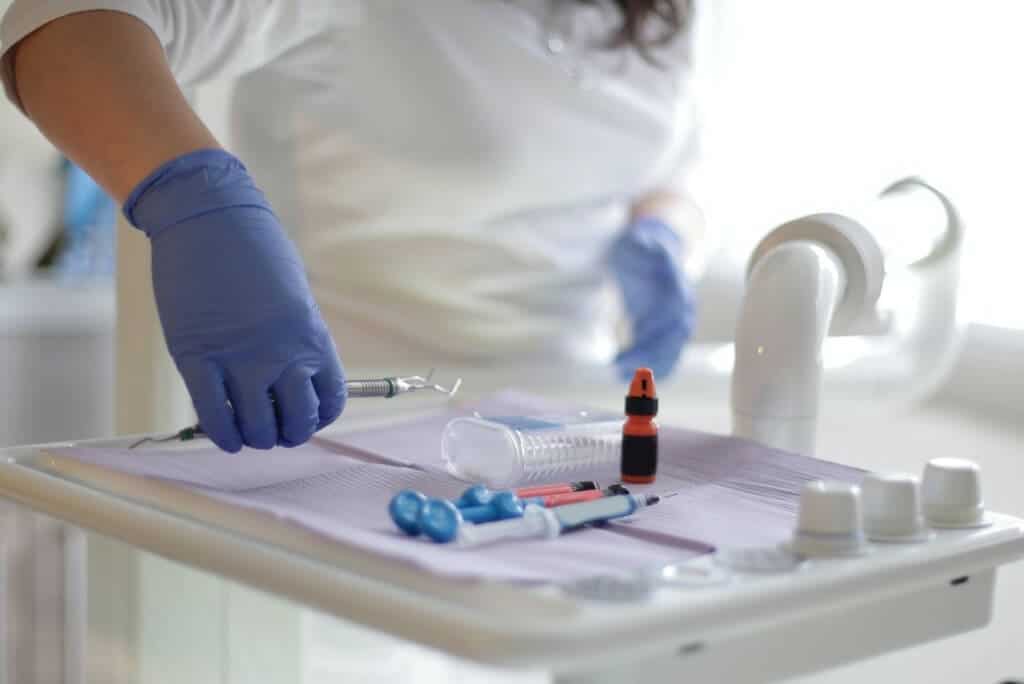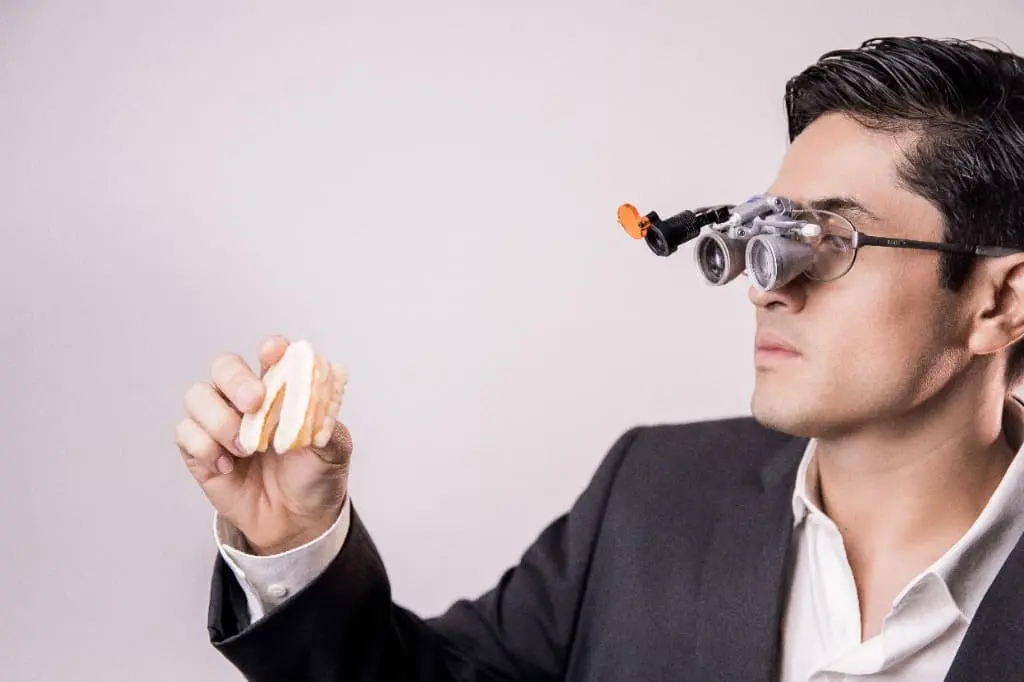The benefits of oral rehabilitation are countless and can significantly impact your oral health. When dealing with dental issues that affect your appearance, ability to speak and eat, and overall confidence, oral rehabilitation can lead to impressive results.
Oral rehabilitation is a comprehensive approach that seeks to restore the function and aesthetics of your mouth. This involves a combination of different treatments, such as dental implants, veneers, crowns, and dentures, depending on your individual needs. By undergoing these procedures, you can regain lost oral health and improve your quality of life.
The main advantage of oral rehabilitation is that it not only solves dental problems but also enhances the appearance of your smile. The results are striking and often transformative, allowing you to show off a radiant and healthy smile. Furthermore, this comprehensive approach ensures the restoration of proper mouth function, enabling you to eat and speak with confidence.
Don’t let dental problems prevent you from enjoying life to the fullest. Consider oral rehabilitation as a complete solution to regain oral health and revitalize your smile.

What is Oral Rehabilitation?
Oral rehabilitation is a comprehensive approach that aims to restore the function and aesthetics of the mouth. It involves a set of different treatments tailored to each patient’s individual needs, such as dental implants, veneers, crowns, and dentures. Through these procedures, it is possible to regain lost oral health and improve quality of life.
Oral rehabilitation addresses not only dental problems but also enhances the appearance of the smile. The results are amazing and often transformative, providing a radiant and healthy smile. Moreover, this comprehensive approach ensures that the proper function of the mouth is restored, allowing you to eat and speak with confidence.
Importance of Oral Rehabilitation
Oral rehabilitation is of vital importance for those suffering from dental problems that affect their appearance, ability to speak and eat, and overall confidence. By addressing these issues comprehensively, oral rehabilitation can have a significant impact on a person’s oral health and quality of life.
A healthy mouth is not only important for enjoying food and speaking clearly but also for maintaining good general health. Untreated dental problems can lead to more serious complications, such as infections and heart disease. Oral rehabilitation can prevent and treat these problems, providing a complete solution to restore oral health.
Oral Problems That May Require Oral Rehabilitation
Several oral problems may require oral rehabilitation for treatment. Some of the most common issues are:
- Tooth Loss: Tooth loss can occur due to dental decay, periodontal disease, or injuries. Oral rehabilitation may include the placement of dental implants or dentures to replace missing teeth and restore chewing function.
- Damaged Teeth: Teeth damaged by decay, fractures, or wear can affect both the appearance and function of the mouth. In oral rehabilitation, dental crowns or veneers can be used to restore the shape and function of damaged teeth.
- Dental Misalignment Problems: Dental alignment problems, such as crowded or mispositioned teeth, can affect the appearance of the smile and chewing function. Oral rehabilitation may include orthodontic treatments, such as braces or clear aligners, to correct dental alignment.
- Temporomandibular Joint (TMJ) Problems: Problems in the temporomandibular joint can cause pain, difficulty opening and closing the mouth, and other uncomfortable symptoms. Oral rehabilitation may include TMJ therapy and the use of mouthguards to relieve pain and improve function.
Oral rehabilitation is tailored to the individual needs of each patient, so it’s important to consult a specialist to determine the appropriate treatment.
Oral Rehabilitation Process
The oral rehabilitation process generally consists of several stages, which may vary depending on each patient’s individual needs. A general oral rehabilitation process is described below:
- Initial Evaluation: In the first stage, the oral rehabilitation specialist will perform a comprehensive evaluation of the mouth and discuss the patient’s problems and goals. X-rays and photographs may be taken to aid in diagnosis.
- Treatment Planning: Once the initial evaluation has been completed, the specialist will develop a personalized treatment plan. This may include a combination of different procedures, such as dental implants, veneers, crowns, orthodontics, among others.
- Dental Treatment: The next step is to carry out the necessary procedures according to the treatment plan. This may involve extracting damaged teeth, placing dental implants, preparing teeth for veneers or crowns, and other specific treatments.
- Prosthetic Restoration: Once the dental treatments have been completed, the prosthetic restoration phase can proceed. This involves the creation and placement of dental prostheses, such as crowns, bridges, or dentures, to restore the function and aesthetics of the mouth.
- Follow-up and Aftercare: After completing the oral rehabilitation process, it is important to maintain good oral hygiene and schedule regular visits to the specialist. Adjustments or repairs to dental prostheses may also be required over time.
It is important to note that the oral rehabilitation process can take time, as each stage requires care and precision. However, the final results are worth it, as a significant improvement in oral health and quality of life is achieved.
Types of Treatments in Oral Rehabilitation
Oral rehabilitation encompasses a wide range of dental treatments, tailored to the individual needs of each patient. Some of the most common treatments in oral rehabilitation are presented below:
- Dental Implants: Dental implants are an excellent option for replacing missing teeth. They consist of a titanium structure that is placed in the jawbone and acts as an artificial root. A dental crown is placed over the implant, which allows for the restoration of chewing function and the aesthetics of the mouth.
- Dental Veneers: Dental veneers are thin porcelain or composite shells that are bonded to the front surface of the teeth. They are used to correct aesthetic problems, such as the color, shape, or size of the teeth. Veneers can completely transform the appearance of the smile, providing a natural and radiant look.
- Dental Crowns: Dental crowns are dental prostheses that completely cover a damaged or weakened tooth. They are used to restore the shape, function, and strength of the tooth, protecting it from future damage. Dental crowns can be made of porcelain, metal-porcelain, or zirconia, and adapt to the natural appearance of neighboring teeth.
- Dentures: Dentures are removable prostheses that replace several missing teeth. They can be partial, if used to replace some teeth, or complete, if used to replace all the teeth in an arch. Dentures are a valid option for those who are not candidates for dental implants or want a more economical solution.
These are just a few examples of the treatments that can be performed in oral rehabilitation. The choice of treatments will depend on the individual needs and goals of each patient, always in consultation with an oral rehabilitation specialist.
Benefits of Oral Rehabilitation for Oral Health
Oral rehabilitation offers a series of benefits for a person’s oral health. Some of the most notable benefits are:
- Restoration of Chewing Function: Dental problems can hinder the ability to chew and properly enjoy food. Oral rehabilitation seeks to restore chewing function, allowing people to enjoy a varied and nutritious diet.
- Improvement of Dental Aesthetics: Oral rehabilitation not only solves dental problems but also enhances the appearance of the smile. Aesthetic treatments, such as dental veneers or crowns, can completely transform the appearance of the teeth, providing a radiant smile and self-confidence.
- Prevention of Future Problems: By addressing dental problems comprehensively, oral rehabilitation can prevent more serious complications in the future. For example, the placement of dental implants prevents neighboring teeth from shifting and prevents bone loss in the jaw.
- Improvement of General Health: Oral health is closely related to general health. Untreated dental problems can cause inflammation, infections, and increase the risk of heart disease and diabetes. Oral rehabilitation can improve general health by preventing and treating these oral problems.
These benefits demonstrate the importance of oral rehabilitation as a complete solution to restore oral health and improve a person’s quality of life.
Aftercare Following Oral Rehabilitation
After completing the oral rehabilitation process, it is important to follow certain aftercare instructions to maintain the results obtained and ensure good long-term oral health. Some aftercare tips include:
- Maintain Good Oral Hygiene: Continue brushing your teeth at least twice a day and flossing daily. In addition, it is important to make regular visits to the dentist for professional cleanings and check-ups.
- Avoid Harmful Foods and Habits: Avoid foods and drinks that can stain or damage teeth, such as coffee, tea, and tobacco. Also, avoid biting hard objects or using your teeth as tools.
- Use Mouthguards: If you play contact sports or suffer from teeth grinding at night, use mouthguards to protect your teeth and dental prostheses.
- Follow Specialist’s Instructions: Follow the recommendations and aftercare programs provided by the oral rehabilitation specialist. This may include the use of special mouthwashes or performing rehabilitation exercises.
By following these aftercare instructions, you can maintain the results of your oral rehabilitation and enjoy good long-term oral health.
Cost of Oral Rehabilitation
The cost of oral rehabilitation can vary depending on several factors, such as the severity of the dental problems, the number of treatments needed, and the geographical location. It is important to note that oral rehabilitation is a personalized process, and costs can vary from one patient to another.
To determine the cost of oral rehabilitation, it is advisable to schedule a consultation with an oral rehabilitation specialist. During the consultation, the specialist will evaluate your needs and goals and can provide you with a detailed quote based on your specific case.
It is important to remember that oral rehabilitation is an investment in your oral health and quality of life. Although it may have an initial cost, the long-term benefits outweigh the economic cost.
How to Find an Oral Rehabilitation Specialist
Finding an oral rehabilitation specialist is key to ensuring successful treatment and achieving the best results. Here are some steps you can follow to find an oral rehabilitation specialist:
- Consult Your Trusted Dentist: Your regular dentist can be a good starting point. Ask if they can recommend an oral rehabilitation specialist or if they have any referrals.
- Seek Recommendations: Ask family, friends, or colleagues who have undergone an oral rehabilitation process for recommendations. Word-of-mouth can be a reliable way to find a trustworthy specialist.
- Research Online: Search online for oral rehabilitation specialists in your area. Read reviews and testimonials from previous patients to get an idea of the quality of their work and patient satisfaction.
- Schedule Consultations: Once you have identified some potential specialists, schedule consultations to discuss your needs and goals. During these consultations, be sure to ask all the questions you have and evaluate communication and trust with the specialist.
By finding an oral rehabilitation specialist with whom you feel comfortable and confident, you will be on the right track to restoring your oral health and revitalizing your smile.
Conclusion: Reclaim Your Oral Health with Oral Rehabilitation
Oral rehabilitation offers a complete solution to restore oral health and improve quality of life. By combining different treatments, such as dental implants, veneers, crowns, and dentures, it is possible to address dental problems and enhance the appearance of the smile.
Oral rehabilitation not only restores chewing function and improves dental aesthetics but also prevents future problems and enhances overall health. It is a personalized process that requires time and care, but the final results are worth it.
Don’t let dental problems prevent you from fully enjoying life. Consider oral rehabilitation as a complete solution to restore your oral health and revitalize your smile. Consult an oral rehabilitation specialist and take the first step toward a healthy mouth and a radiant smile.





